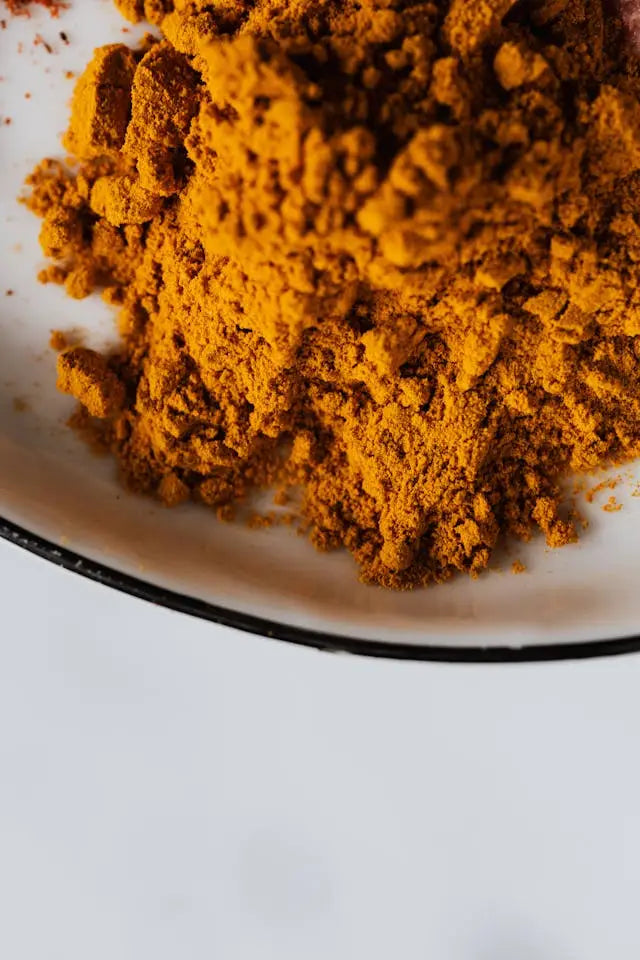
The Benefits of Turmeric Beyond Joint Health
Share
The Benefits of Turmeric for Overall Wellness Beyond Joint Health
1. Introduction
Turmeric, a vibrant yellow spice, has been celebrated for centuries not just for its flavour but for its remarkable health benefits. While many are familiar with turmeric's role in promoting joint health, its potential extends far beyond that. In this article, we will explore the various advantages of turmeric for overall wellness, including its anti-inflammatory properties, antioxidant effects, and benefits for mental health. Understanding these aspects can help you incorporate turmeric into your daily routine effectively.
2. Understanding Turmeric
2.1 What is Turmeric?
Turmeric, scientifically known as Curcuma longa, is a flowering plant belonging to the ginger family. Its rhizome, or root, is dried and ground into the bright yellow spice we commonly use in cooking. The active compound in turmeric, curcumin, is primarily responsible for its health-promoting properties.
2.2 Historical Uses of Turmeric
Historically, turmeric has been a staple in traditional medicine systems, such as Ayurveda and Traditional Chinese Medicine. It has been used for centuries to treat a variety of ailments, ranging from digestive issues to skin conditions. Culturally, turmeric holds significant importance in many regions, often being used in ceremonies and rituals, symbolising purity and prosperity.
3. Turmeric and Its Health Benefits
3.1 Anti-Inflammatory Properties
Turmeric is renowned for its powerful anti-inflammatory properties. Chronic inflammation is linked to various health conditions, including heart disease and cancer. Research has shown that curcumin can inhibit several molecules that play a role in inflammation, thus supporting overall health. A study published in the Journal of Clinical Immunology highlighted the effectiveness of curcumin in managing inflammatory conditions.
3.2 Antioxidant Effects
Antioxidants are crucial for combatting oxidative stress, which can lead to cellular damage and chronic diseases. Curcumin is a potent antioxidant that neutralises free radicals, reducing oxidative damage in the body. Its ability to enhance the body’s own antioxidant enzymes further contributes to its protective effects, as noted in research published in the American Journal of Clinical Nutrition.
3.3 Immune System Support
In addition to its anti-inflammatory and antioxidant properties, turmeric has been shown to boost immune function. Regular consumption of turmeric may enhance the body’s ability to fend off illnesses and infections, making it a valuable addition to a wellness-focused diet.
4. Turmeric for Mental Wellness
4.1 Mood Enhancement
Emerging research suggests that turmeric may play a role in improving mood and reducing anxiety. Studies indicate that curcumin can increase levels of brain-derived neurotrophic factor (BDNF), a protein linked to mood regulation. A clinical trial published in the Journal of Affective Disorders found that participants who consumed curcumin experienced significant improvements in their mood.
4.2 Cognitive Function
Turmeric's potential benefits may extend to cognitive function as well. Some studies have explored curcumin's effects on memory and its potential role in preventing neurodegenerative diseases such as Alzheimer's. Research published in the Journal of Psychopharmacology indicated promising results regarding curcumin's ability to enhance cognitive performance.
5. Incorporating Turmeric into Your Diet
5.1 Culinary Uses of Turmeric
Turmeric is incredibly versatile and can be easily incorporated into your diet. Here are some popular ways to use turmeric:
- Add it to curries and stews for a warm, earthy flavour.
- Mix turmeric powder into smoothies for a nutritious boost.
- Prepare turmeric tea by steeping fresh turmeric root or powder in hot water.
- Use turmeric in salad dressings for added colour and health benefits.
To maximise health benefits, consider pairing turmeric with black pepper, which enhances curcumin absorption in the body.
5.2 Turmeric Supplements
If cooking with turmeric isn't feasible, supplements are a convenient alternative. Various forms are available, including capsules, powders, and tinctures. When choosing a supplement, look for products that contain a high concentration of curcumin and are free from harmful additives. Always consult a healthcare professional for guidance on the appropriate dosage for your needs.
6. Potential Side Effects and Considerations
6.1 When to Avoid Turmeric
While turmeric is generally safe for most people, there are certain situations where it may be advisable to avoid it. Individuals with gallbladder issues or those on blood-thinning medications should consult a healthcare provider before adding turmeric to their regimen.
6.2 Recommended Dosages
For most individuals, a daily intake of 500 to 2,000 mg of curcumin is considered safe. However, individual tolerance can vary, so starting with a lower dose and gradually increasing is recommended. Always seek personalised advice from a healthcare professional.
7. Conclusion
In summary, the benefits of turmeric for overall wellness extend far beyond joint health. Its anti-inflammatory, antioxidant, and mental wellness properties make it a valuable addition to any diet. As you consider incorporating turmeric into your lifestyle, remember that a holistic approach to health is vital. Embracing a range of nutritious foods and maintaining an active lifestyle will maximise the benefits of turmeric. Start by adding a sprinkle of this golden spice to your meals today!
For those looking to enhance their overall wellness, turmeric may just be the golden touch you need.
Essential Life offers high quality turmeric supplements to help enhance your health and wellbeing
